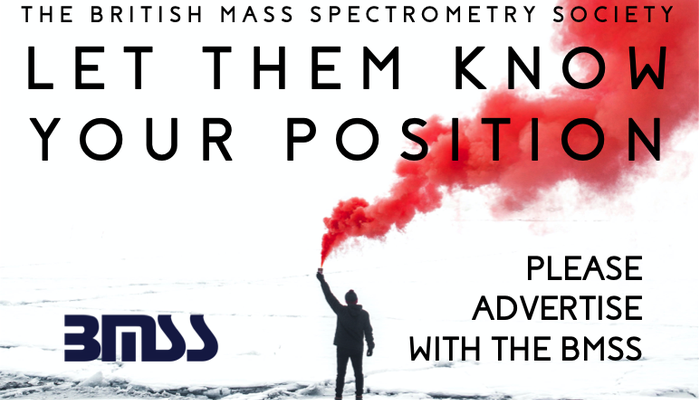PhD student
- Vacancy Reference Number
- N/A
- Organisation:
- Imperial College London
- Closing Date
- 9 Jun 2023
- Salary
- £19,668 (plus CASE top up)
- Address
- Imperial College London
- Duration
- 48 months
About the Project:
Applications are invited for a 4-year PhD studentship funded by an EPSRC industrial CASE award, commencing October 2023 for the project entitled: Structural elucidation of small molecules using tandem mass spectrometry and accurately predicted fragmentation patterns
The studentship will be supervised by Prof. Zoltan Takats, Division of Systems Medicine, Department of Metabolism, Digestion and Reproduction, Imperial College London, Dr. Bela Paizs, Biological Mass Spectrometry Theme, The Rosalind Franklin Institute, Dr Stephen Holman, Chemical Development, AstraZeneca, and Dr Andrew Ray, New Modalities Product Development, AstraZeneca.
Studentship Details:
The award is for 48 months (full time) and covers course fees at the Home/Ireland rates and a stipend of £19,668 in addition to an AstraZeneca CASE top up. Applicants must hold a First Class or an Upper Second Class degree (or equivalent overseas qualification) in Chemistry/Biochemistry/Biomedical Sciences, a Master's degree in a related field is desirable but not essential. The studentship will principally be based at Imperial College, with a placement at AstraZeneca in Macclesfield (for 3 months) and in close collaboration with the Biological Mass Spectrometry Theme at the Rosalind Franklin Institute.
Further details on the CASE award scheme can be found at: https://www.ukri.org/what-we-offer/developing-people-and-skills/epsrc/studentships/industrial-case/
For informal enquiries please contact Prof. Zoltan Takats (z.takats@imperial.ac.uk), Dr Bela Paizs (bela.paizs@rfi.ac.uk) and Dr Stephen Holman (stephen.holman@astrazeneca.com)
To apply, please send a covering letter, full CV and the contact details of two referees to bela.paizs@rfi.ac.uk
The deadline for application is 9th June 2023 with interviews held in early July.
Project Outline:
Structure elucidation of small molecules is currently underpinned by a remarkably narrow analytical toolkit including NMR and mass spectrometry (MS) based workflows. Full structural characterisation by NMR typically requires multi-µg of purified material, long spectrum acquisition and advanced spectrum assignment skills. On the other hand, MS is straightforward to couple to liquid chromatography (LC) allowing rapid analysis of even very complex mixtures without purification. State-of-the art mass spectrometers are extremely sensitive and provide structural information on the µsec time scale. Further structural data can be obtained if molecular ions are fragmented in tandem MS (MS/MS) and also if mass analysis is coupled to ion mobility spectrometry (IMS) providing “shapes” (collisional cross sections, CCS) of investigated species. These complex LC-MS/MS-IMS experiments offer a faster, cheaper and more sustainable venue for structural elucidation of unknowns than NMR does. However, rapid data-analysis, e.g. assignment of the unknown structure from mass, MS/MS patterns and CCS values is currently an unsolved scientific problem hindering further exploitation of these technologies in pharmaceutical analysis and beyond. It is particularly difficult to accurately predict fragmentation patterns for general organic molecules and associated fragment structures.
This project will harness MS/MS, IMS and computational chemistry in combination to develop a new strategy for assigning molecular structures. Imperial College London, RFI and AstraZeneca have all established LC-MS/MS-IMS platforms which provide experimental data on unidentified features. We propose to assign a range of such species utilising our recent Universal Fragmentation Model (UFM) approach to compute the fragmentation pathways of molecular and fragment ions and match these to observed MS/MS and IMS data. We will explore whether the approach can enable rapid structural assignment of various species i.e. without resorting to NMR-based structural elucidation.
UFM is based on prediction and validation of fragmentation pathways, dissociation energetics, molecular ion and fragment structures in 3D using gas-phase ion chemistry and modelling at both classical and quantum chemical levels. The computed detailed fragmentation data is used to model the competition of the associated pathways (both charge-directed and charge-remote) to identify the most likely fragment ions and generate multiple-stage MSn patterns. For protonated species UFM considers all plausible protonation sites and explores the energetics of protonation, rearrangements by hydride transfer, ring formation and opening, dissociations from the original and rearranged structures and recombination of fragments. UFM is implemented into our software deFrag that reads 2D molecular structures and automatically performs 3D computations associated with the model.
The focus of UFM developments to date has been endogenous metabolites to further metabolomics studies, but the difference in chemistry of “drug and drug-like molecules” necessitates an assessment of this chemical space. To address this need the iCASE student will:
- Identify a set of molecules of practical relevance which cover the typical structural elucidation problems met in pharmaceutically relevant research;
- Acquire detailed LC-MS/MS-IMS data both for purified compounds and also in complex matrices;
- Compute fragmentation patterns, energetics and 3D structures for the same molecules using UFM and deFrag;
- Critically assess computational data against the observed MS/MS and IMS features and identify limitations/issues on both sides;
- Modify/redesign experiments and computational strategies to reach the highest possible conformity, that is generate a new LC-MS/MS-IMS-UFM workflow; Validate our new approach on an independent test set.
The outlined strategy will allow fine tuning of both experimental and computational strategies for structural elucidation of molecules with pharmacological relevance.
The iCASE student is expected to participate in all major phases of this project ranging from study design to data acquisition and modelling. The student will be able to draw on the wide range of expertise available on LC-MS/MS-IMS, modelling, chemoinformatics and bioinformatics, respectively. The experimental component of the project will equip the student with skills and knowledge in topics such as sample preparation, experimental design, gas-phase ion chemistry, MS/MS and IMS both standard setups and beyond. Their analysis skills will include fluency in MS related data interpretation and modelling, a rather unique combination. These activities will also develop valuable transferable skills in critical evaluation and creative problem solving.
Further Information
https://www.findaphd.com/phds/project/structural-elucidation-of-small-molecules-using-tandem-mass-spectrometry-and-accurately-predicted-fragmentation-patterns/?p158383
https://www.imperial.ac.uk/metabolism-digestion-reproduction/study/phd-opportunities/funding/
Contact Details
For informal enquiries please contact Prof. Zoltan Takats (z.takats@imperial.ac.uk), Dr Bela Paizs (bela.paizs@rfi.ac.uk) and Dr Stephen Holman (stephen.holman@astrazeneca.com).

